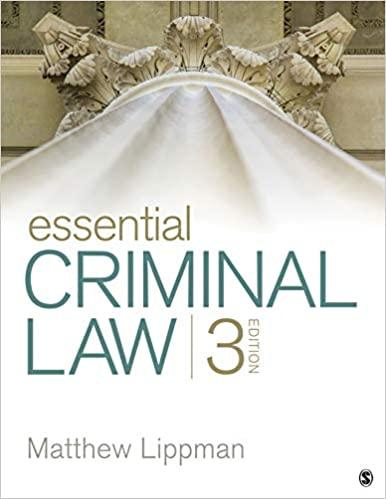Answered step by step
Verified Expert Solution
Question
1 Approved Answer
according to BC, Canada law Question 1 ( 4 marks) Explain, using the two main tests and four factors used by the courts in each
according to BC, Canada law Question 1 ( 4 marks) Explain, using the two main tests and four factors used by the courts in each test, how the court will determine whether a person is an employee rather than an independent contractor. Question 2 (3 marks) Name six factors that at common law are considered by the courts to determine the appropriate length of notice that should be given to terminate an employment relationship? Question 3(3marks) Name four just cause reasons for which an employee can be dismissed without being given notice? Name four circumstances in which an employee can quit his job without being required to give notice of termination to his employer? Question 4 ( 3 marks) Explain the purpose of a shareholder's agreement and identify four provisions it should contain. Question 5 ( 5 marks) Define what bailment is, then explain the three different types or categories of bailment and the modern standard of care imposed on the bailee for each type. Question 6 ( 1 mark) Explain under what circumstances the court will "lift the corporate veil" Question 7 ( 2 marks) Contrast a tenancy in common with a joint tenancy as it relate to ownership of land.Why is the distinction important? Question 8 ( 2 marks) How are rights of a person under a lease agreement different from the rights of a person under a license agreement in real property law? Question 9 ( 1 mark) What two principles does the law of intellectual property try to balance? Question 10 ( 2 marks) Explain how a copyright is obtained and the qualifications that must be met in order to obtain such protection. Question 11 ( 5 marks) In relation to copyright, (a) name the three "moral rights", (b) explain in detail what each one consists of, and (c) explain what it means to say that they cannot be assigned but can be waived? Question 12( 3 marks) Explain three areas of the law under which a partner can be vicariously liable for the acts of his or her partners (not employees) and describe the limitations on this responsibility. Question 13 ( 4 marks) Partners have fiduciary obligations to each other. Explain at least four of these obligations between partners. Question 14 ( 3 marks) What are the main advantages of limited liability partnerships (LLP's)? Explain what they are liable for and not liable for.In light of this, what does the law require, in an attempt to protect those who suffer losses through the actions of a partner or an employee of a limited liability partnership? Question15 ( 1 marks) Explain how the limited liability of a shareholder can be lost. Question16 ( 5 marks) Set out the nature of the duties owed by a director of a corporation. To whom are these duties owed? Who else in the corporate organization owes similar duties? Question 17 ( 3marks) Distinguish between a derivative action, a dissent action and an oppression action in corporate law, and explain when each would be appropriate
Step by Step Solution
There are 3 Steps involved in it
Step: 1

Get Instant Access to Expert-Tailored Solutions
See step-by-step solutions with expert insights and AI powered tools for academic success
Step: 2

Step: 3

Ace Your Homework with AI
Get the answers you need in no time with our AI-driven, step-by-step assistance
Get Started


